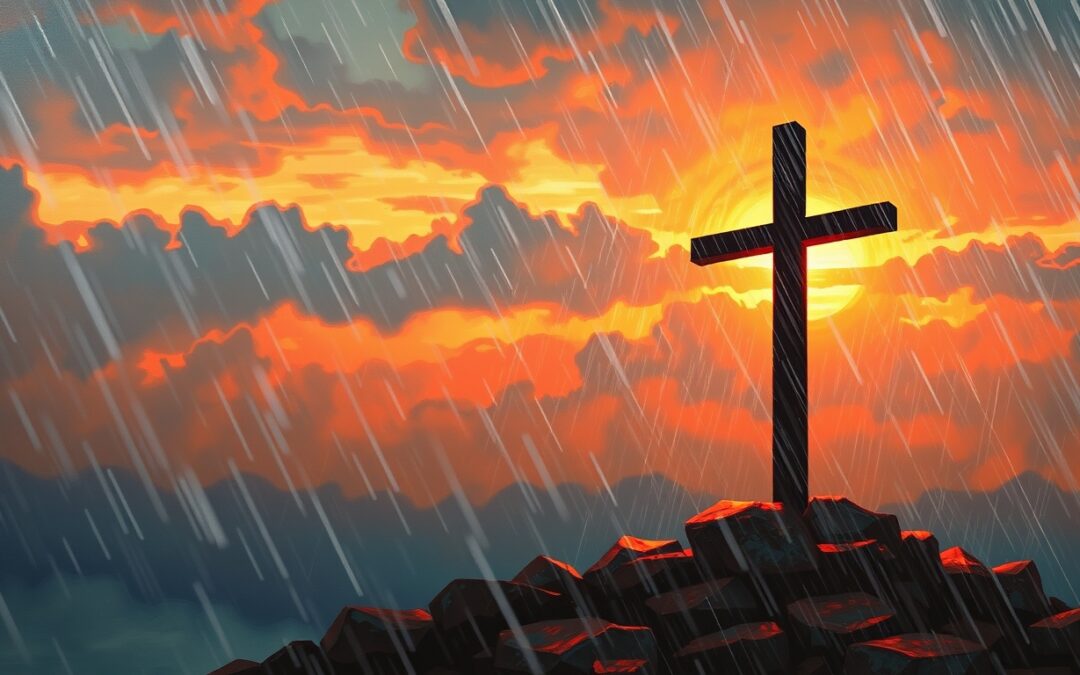“And when they were come unto a place called Golgotha, that is to say, a place of a skull, they gave him vinegar to drink mingled with gall: and when he had tasted thereof, he would not drink,” (Matt. 27:33-34).
When all the filters of modern Christianity are removed and we behold the earthly ministry of our Lord through the eyes of truth, the words of Paul in Philippians 2:7 confirm what we see. Speaking of Christ, he explains, “He made himself of no reputation, and took upon him the form of a servant.”
Consistent with that description, Jesus died among thieves on a hill of putrid refuse known as Golgotha, among rotting, graveless bones of infamous malefactors. His birth was without a cradle, his life without a place to lay his head (Matt. 8:20), and his burial without coverings or a grave of his own. Not only that, his bitter suffering and death were on display right outside Jerusalem, the theater of the world (especially at this time of the Passover), to further proliferate the disgrace and shame he endured.
Job’s misery atop a dunghill (as shared in the Old Testament book by the same name) was lamentable by comparison, as he sat scraping his sores with a potsherd (Job 2:8) while the worms gnawed his flesh. But Christ was not allowed the opportunity to sit as Job did, for he hangs on the cross, while his strength is dried up like a potsherd (Ps. 22:15). All the while, the worst of worms – our vile sins – eat through to his very soul. Finally, he is crucified outside the gates of the city (Deut. 16:5-6); not on the ground but aloft in the air for all to see, to demonstrate the merit of his death upon all kinds of people. Breathing his last breath atop this dunghill of Golgotha confirms the raw, brute ugliness of his passion and suffering (Ps. 105:18).
If we are to share in this sin offering, we must also go outside the camp (Deut. 16:7). “Let us go forth therefore unto him without the camp, bearing his reproach,” (Heb. 13:13), offering up ourselves as living sacrifices to him (Rom. 12:1). For though he offered up himself once for all (Heb. 7:27), our self-sacrifices of service and worship, thanksgiving and praise should be continually burning as sweet-smelling incense unto him inspires us with his own breath, revives us with his own blood, nourishes us with his own flesh, redeems us with his own death, and secures us in his own wounds.
Contemplations:
- O my blessed Lord, not only are you a Savior to me in your death, but you are a Mediator to me in your life. You rejoice over me as the father rejoiced over his prodigal son, or the shepherd his lost sheep that he so long sought in the wilderness, or the lost coin that was found on sweeping the house.
- Do not let me think any place too far, any pains too much, any conditions too low to seek you, Lord. Let me seek you everywhere – in the mountain where you prayed, in the garden where you sweated and bled, in the wilderness where you fasted, but especially here in Golgotha, where you suffered and died (Matt. 27). For it was on Golgotha that you stretched widest your arms of mercy and pierced deepest your heart of compassion. If the first Adam turned Paradise into a Golgotha of death and of sin, how graciously have you, the second Adam, turned Golgotha into a Paradise of life and of grace. Here grows that tree of life, which is to say, your cross. Here flows that river that nourishes the garden of your church, which is to say, your blood.
- Raise me out of the grave of sin, Lord, for it is a Golgotha of rottenness. Seeing you poured out your blood and breathed out your soul among these dead, dry stinking bones, make me a sacrifice of sweetest savor to you; and since for me you embraced so much shame, so much pain, so much poverty to die on Golgotha, a loathsome dunghill, do not let me seek ease, glory, or profit, but count all things no better than loss and dung (Phil. 3:8) that I may win Christ Jesus.
Further References for Matt. 27:33-34
Mark 15:22; John 19:17; Luke 23:33; Matt. 27:48


